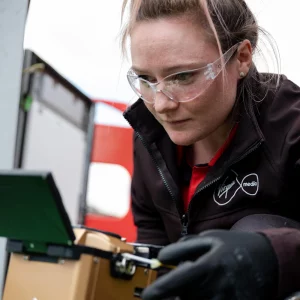Sponsored Links
More than 1 in 3 UK Families with Children Live Without Broadband
Posted: 28th Apr, 2010 By: MarkJ
 The latest Point Topic study has found that 35% of all families with kids in the UK, over 4 million children, do not have easy broadband internet access at home. The research warns that such children are left at a significant disadvantage in an online world and will also remain disconnected from the socialising of their connected peers.
The latest Point Topic study has found that 35% of all families with kids in the UK, over 4 million children, do not have easy broadband internet access at home. The research warns that such children are left at a significant disadvantage in an online world and will also remain disconnected from the socialising of their connected peers.However only an estimated 40,000 families with children live in areas beyond the reach of fixed line broadband services and 1.4 million live in areas where broadband is available but only at speeds of less than 2Mbps. Furthermore about 6 million families live in areas with reasonably good broadband, though only two-thirds of them subscribe to it.
The study appears to show that this "digital divide" is not caused by a lack of broadband but rather because people have chosen not the buy it. Issues such as the high cost of broadband ISPs, specifically in areas with low competition, are at least partly to blame for this. Many affected children do also live in less prosperous country constituencies like the Derbyshire Dales.

The research fears that children who are brought up without good internet access could eventually cost the economy many billions over future years. However the current government does have plans to tackle this, such as its £300m 'Broadband for All' scheme (here). This will give a grant of £500 to children from 270,000 low income families (earning less than £16,040 per year), allowing them to select an approved computer; includes a free 12 month broadband ISP subscription.
Sadly that scheme won't officially get started until March 2011 and before then there is the small matter of a looming general election and the affordability of doing all of this while the country still has a mountain of debt to pay-off.
Point Topic believes that those 4 million children left without broadband will have lower earning power, creating increased social costs through their lifetime compared with their peers. If the losses average as much as £500 per year over a 40-year working life then the total cost to the UK will be £80 billion.
Search ISP News
Search ISP Listings
Search ISP Reviews
Latest UK ISP News








Cheap BIG ISPs for 100Mbps+
150,000+ Customers | View More ISPs
Cheapest ISPs for 100Mbps+
Modest Availability | View More ISPs
Latest UK ISP News
Helpful ISP Guides and Tips
Sponsored Links
The Top 15 Category Tags
- FTTP (6802)
- BT (3882)
- Politics (3075)
- Business (2767)
- Openreach (2663)
- Building Digital UK (2512)
- Mobile Broadband (2476)
- FTTC (2142)
- Statistics (2129)
- 4G (2093)
- Virgin Media (2026)
- Ofcom Regulation (1779)
- 5G (1733)
- Fibre Optic (1604)
- Wireless Internet (1595)
Sponsored
Copyright © 1999 to Present - ISPreview.co.uk - All Rights Reserved - Terms , Privacy and Cookie Policy , Links , Website Rules





























